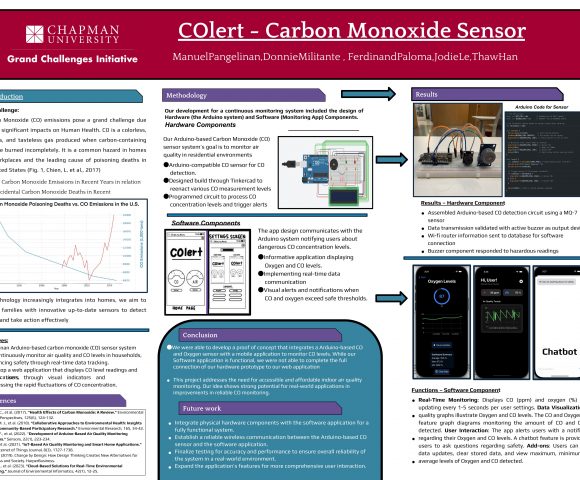
COlert - Carbon Monoxide Sensor
At our 2025 GCI Spring Showcase, a group of students presented a poster about the integration of an Arduino-based CO and Oxygen sensor, along with a mobile app to monitor CO levels.

At our 2025 GCI Spring Showcase, a group of students presented a poster about the integration of an Arduino-based CO and Oxygen sensor, along with a mobile app to monitor CO levels.

At our 2025 GCI Spring Showcase, a group of students presented a poster about an educational board game that simulates real-world trade-offs, hoping to help players better understand collective action and system dynamics.

At our 2025 GCI Spring Showcase, a group of students presented a poster about a patient-centered remodel of psychiatric garments that provides greater comfort, beauty, and safety.

At our 2025 GCI Spring Showcase, a group of students presented a poster about a program that uses AI, wearable data, and user input to deliver a customizable fitness experience through real-time feedback, adaptive workout planning, and an intuitive interface.

At our 2025 GCI Spring Showcase, a group of students presented a poster about an app developed to reduce food waste produced from the Randall Dining Commons to provide feedback, raise awareness, and repurpose leftovers for students.

At our 2025 GCI Spring Showcase, a group of students presented a poster about the effectiveness of various air filters, and the potential for alternative fabrics for standard filters used in air purifiers.
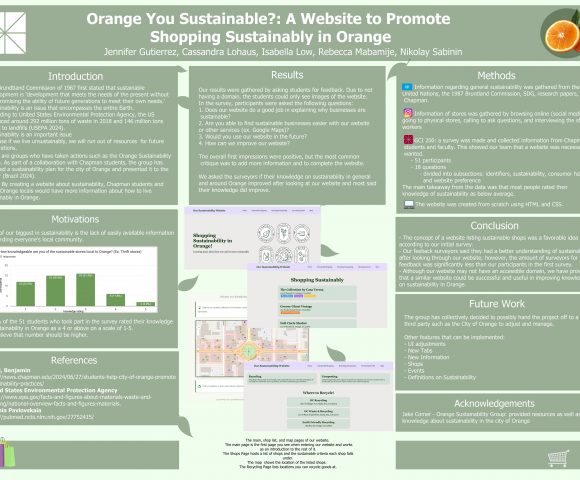
At our 2025 GCI Spring Showcase, a group of students presented a poster about bringing awareness and providing lists of sustainable shops around the area to promote sustainable shopping.
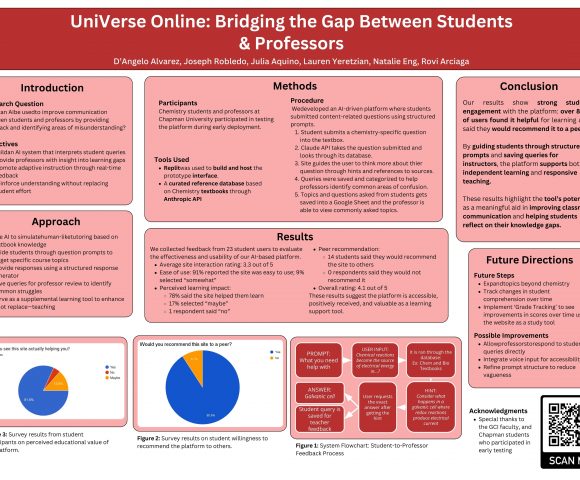
At our 2025 GCI Spring Showcase, a group of students presented a poster about student engagement through use of an AI tool to help form commonly asked questions.
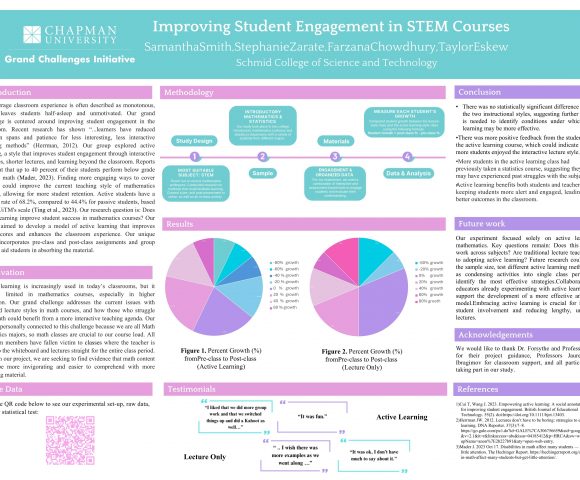
At our 2025 GCI Spring Showcase, a group of students presented a poster about two different instructional styles that promote more engagement and alertness in the classroom.
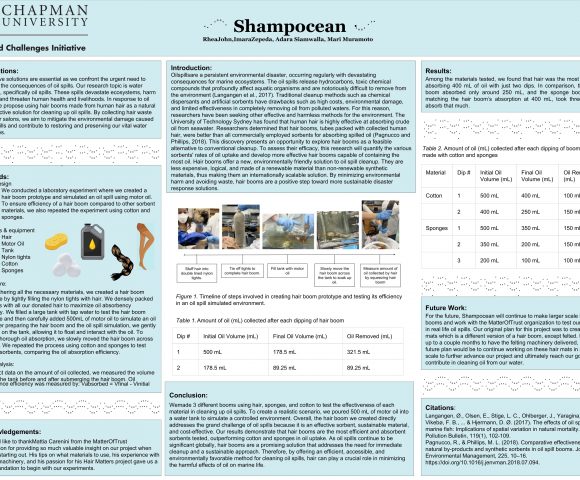
At our 2025 GCI Spring Showcase, a group of students presented a poster about a effective and cost-efficient material that can help absorb harmful oil spills.